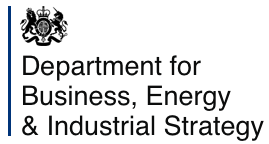Boris Johnson is the new Prime Minister of the United Kingdom. Yesterday, in his first address to the House of Commons as PM, he expressed his passionate support for nuclear power. Seven of the U.K.’s eight operating nuclear power plants are scheduled to be retired by 2030. Attempts to build new nuclear power plants have had problems with funding over the past two years.
Johnson was responding to a question from Trudy Harrison, the member of parliament for Copeland. Copeland is the borough in Western Cumbria that includes Sellafield which is the nuclear fuel reprocessing and nuclear decommissioning site. It is also the proposed site of the cancelled Moorside nuclear power plant project. She had just pointed out that Copeland is a "center of nuclear excellence" and had asked Johnson if he agreed that “the time is now for a nuclear renaissance”.
In his response to her question, Johnson said that "It is time for a nuclear renaissance and I believe passionately that nuclear must be part of our energy mix," He added that nuclear energy was important in helping the U.K. to meet its carbon emissions reduction target.
On July 22, the U.K. government launched a consultation into funding large-scale nuclear power plants. The consultation also included a proposed twenty-two million dollar investment in the development of small modular reactors. Greg Clark was the secretary of state for the Department for Business, Energy and Industrial Strategy (BEIS). Johnson replaced him with Andrea Leadsom following his election. Clark announced in 2018 that the U.K. government would review the viability of a Regulated Asset Base (RAB) model for new nuclear projects. The RAB model means that sunk costs for nuclear projects will ultimately be recovered from ratepayers.
The consultation states that as the cost of renewable energy sources continues to decline, they will probably provide the major portion of the U.K. low-carbon generating capacity in 2050. It also says that there will still be an important role for low-carbon ‘firm’ or baseload power from nuclear reactors in 2050.
Hinkley Point C (HPC) is currently under construction in Somerset, England. It would not follow the RAB model but any future nuclear power plants would. Up to five more new builds had been planned in the U.K. These would be built by EDF Energy together with China General Nuclear (CGN); NuGeneration (NuGen); and Horizon Nuclear Power.
EDF Energy is working on the construction of two European Pressurized Reactors (EPRs) at Hinkley Point with CGN holding a one third stake in the project. They also planned to build new nuclear power plants at Sizewell in Suffolk and Bradwell in Essex. The Bradwell plant would utilize Chinese technology. Atkins is a U.K.-based engineering company that is a member of the SNC-Lavalin Group. It just announced that it had obtained six-million dollar contract to work on the basic design for the Sizewell C site.
In November of 2018, Toshiba Corp announced that it was cancelling its nuclear new build project at Moorside. It is going to wind up its NuGen subsidiary which was managing the project. The project was intended to produce a nuclear power plant with a four gigawatt gross capacity. Westinghouse AP1000 nuclear technology would be used to build the plant. The reactor design finished the Generic Design Assessment process in early 2017. This was the same month that Westinghouse filed for bankruptcy protection in U.S. courts.
Early this year, Horizon’s new-build projects were suspended. This happened even though the U.K. subsidiary of Hitachi had made substantial progress in its plans to provide five and a half gigawatts of capacity spread between two sites by constructing Hitachi-GE U.K. advanced boiling water reactors. The two intended sites of construction were Wylfa Newydd in north Wales and Oldbury-on-Severn in southwest England. The U.K. ABWR design successfully completed the GDA process in December of 2017. Horizon welcomes the government’s involvement in the RAB consultation. Horizon says that a new funding and financing model was one of the critical steps that are necessary if they are to restart development activities.
